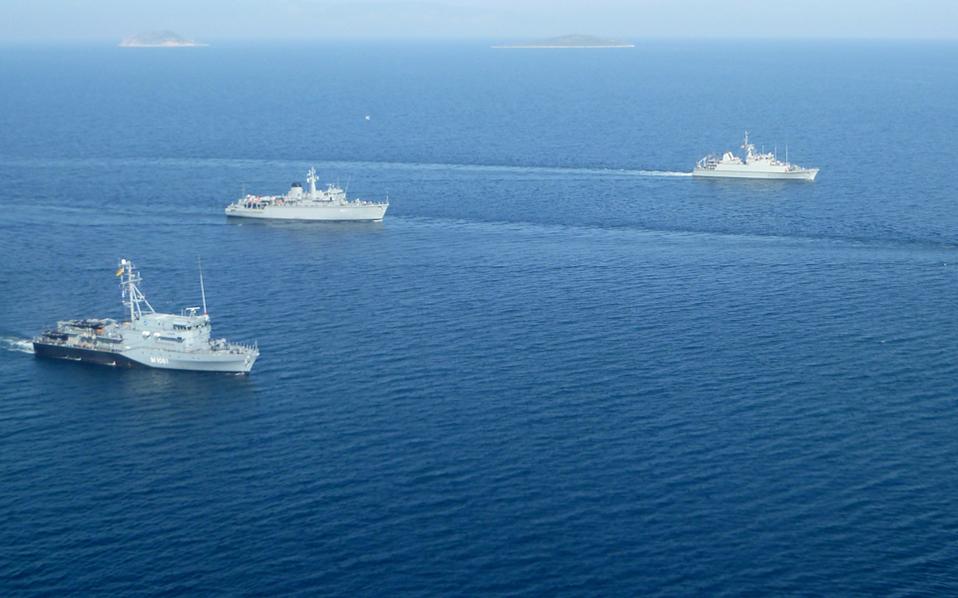Athens rejects claim by Turkish FM that there are no Aegean sea borders

In the latest exchange of acrimony between Athens and Ankara, Greece dismissed claims Wednesday by Turkish Foreign Minister Mevlut Cavusoglu that there are no sea borders between the two countries as “groundless.”
According to Greek diplomatic sources, Cavusoglu’s remarks reflect Turkey’s consistent policy to undermine the status quo in the Aegean.
Government spokesman Dimitris Tzanakopoulos described the Turkish minister’s remarks as “extreme,” saying that they do not assist in building a climate of trust between the two countries.
“We know very well that there are sea borders and that there are international treaties,” he told Real FM radio station Wednesday, adding that, as far as Greece is concerned, “there is no way we will allow anyone to dispute international treaties and the Greek borders.”
Speaking before the Turkish National Assembly, Cavusoglu disputed the Treaty of Lausanne, which set out the modern borders between Greece and Turkey, saying that Ankara will not accept “de facto situations” in the Aegean Sea. He added that that a number of problems remain unresolved in the Aegean between the two neighboring countries.
“Among these problems is the question of sovereignty of certain islets and rocky formations, and the fact that there are no sea borders which are set by an international agreement between Turkey and Greece,” he said.
The Turkish foreign minister said the problem concerns the interpretation of articles of the Lausanne Treaty of 1923 and the Paris Treaty of 1947, adding that issues are currently being discussed within the context of existing channels of communication between Ankara and Athens.
“Our country wants to find a fair solution to all problems within the framework of international law and taking into account its basic rights and interests,” Cavusoglu said.
“In this context, we have announced that we shall not accept de facto situations that Greece may attempt to create in geographical areas with disputed [territorial] status,” he said.





